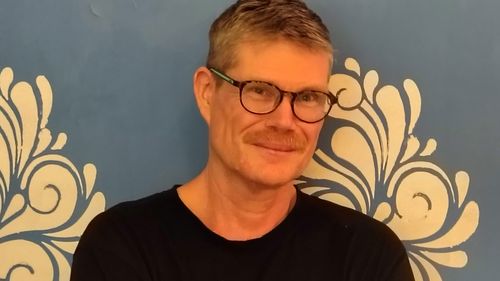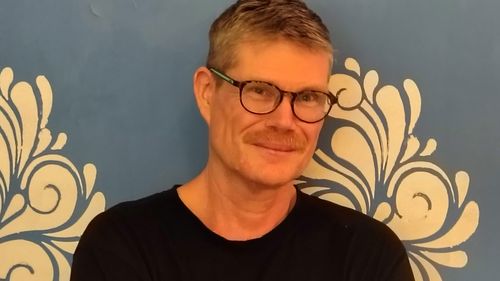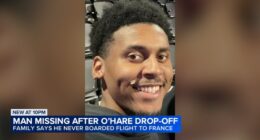Share this @internewscast.com
To Knight, and the many doctors and psychologists he saw, eating disorders were seen as something only affecting females.
However, what began at the age 13 as a way to cope with being shamed for his weight gradually escalated into a life-threatening illness.

“I was a chubby kid,” Dr Knight said.
“I was bullied for my weight.”
“I felt really ashamed about my body. I felt that I wasn’t normal, and it led me to engage in restrictive eating and excessive exercise.”
By the time Knight was in his early thirties, his obsession with his weight had almost killed him.
“Because my eating disorder wasn’t detected, on my first hospital admission, I almost died,” he said.
“I was weighing 43kg. I was completely emaciated. I was bedridden for many weeks, and the doctors thought I would die. I was in the ICU.
“This could have been prevented, if I had proper care, if I had been diagnosed.”
Knight’s struggle was compounded by a profound sense of isolation.
After he was eventually diagnosed with anorexia nervosa, he found himself the only male patient in eating disorder wards.
There were also no “reference points” for him in the media to relate to, a fact that reinforced the dangerous misconception that eating disorders are only a “women’s illness.”
While there were occasional articles about men with “muscle dysphoria”, which relates to an unhealthy fixation on fitness and muscularity, Knight said he never heard of any other males with anorexia nervosa.
Now, as a lived-experience researcher and mental health social worker, Knight is leveraging his own journey to challenge the stereotypes and systemic failures that nearly cost him his life.
Knight, along with Associate Professor Abner Weng Cheong Poon and Professor Ilan Katz, is conducting a study at the University of New South Wales (UNSW)PhD that aims to collect the stories of men who have recovered from eating disorders.
Falling through the cracks
Knight’s delayed diagnosis is not an anomaly.
Knight believes having a healthcare system which is ill-equipped to serve men with eating disorders has also played a part in delayed diagnoses.
“Many mental health clinicians are not trained to detect eating disorders in men,” Knight said.
“Their training predominantly focuses on women with eating disorders, and this is why men fall through the cracks.”
He points to the “female-centric” nature of most eating disorder clinics in Australia, from the staff to the language used.
While body image discussions for women often focus on “hips and thighs,” men’s concerns are centered on “muscles and chest.”
This disconnect can make men feel like an “odd one out” and can lead to them not seeking help or not responding to treatment that is not tailored to their needs.
A turning point and a path to recovery
Knight said his personal turning point came when he realised just how poor his quality of life had become.
He took the important step of finding a psychiatrist who was trauma-informed, supportive, and, most importantly, listened without judgment.
“I’m a sexual abuse survivor, and I wanted someone who was empathic and supportive and didn’t rush my therapy,” he said.
“I did find a psychiatrist, and she was wonderful. It was the first time I really felt that someone actually listened to me who was non-judgmental and provided a very safe and inclusive space for me to explore my vulnerabilities around my eating disorder.”
Knight’s message to other men is simple: “Men do recover from an eating disorder.”
He also stresses the importance of not giving up hope, as he almost did.
Driving change through research
To combat the lack of understanding and support for men, the UNSW study focuses on men’s recovery experiences and aims to fill a gap in research regarding men in Australia with eating disorders.
Knight said the research would capture the full spectrum of men’s experiences, looking beyond the traditional focus on cisgender, able-bodied white men.
Knight said while he was finding it difficult to recruit participants due to the shame and stigma surrounding the topic, he is hopeful the study will educate mental health clinicians and help other men feel less isolated.
“I’m hoping that when I produce journal articles, that it also will give men an opportunity to read my journal articles,” he says. “And they won’t feel so isolated and lonely.”
If you are a man aged 18 or over and have experienced an eating disorder, you can participate in Dr. Knight’s confidential research by emailing him at z5459919@ad.unsw.edu.au.










